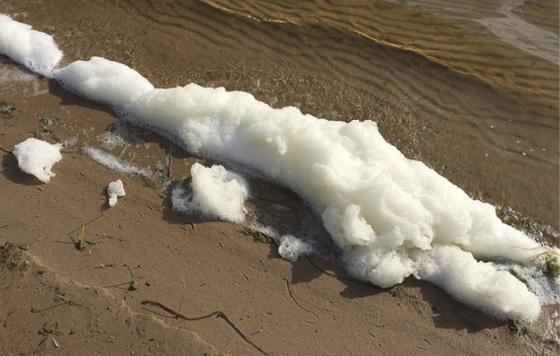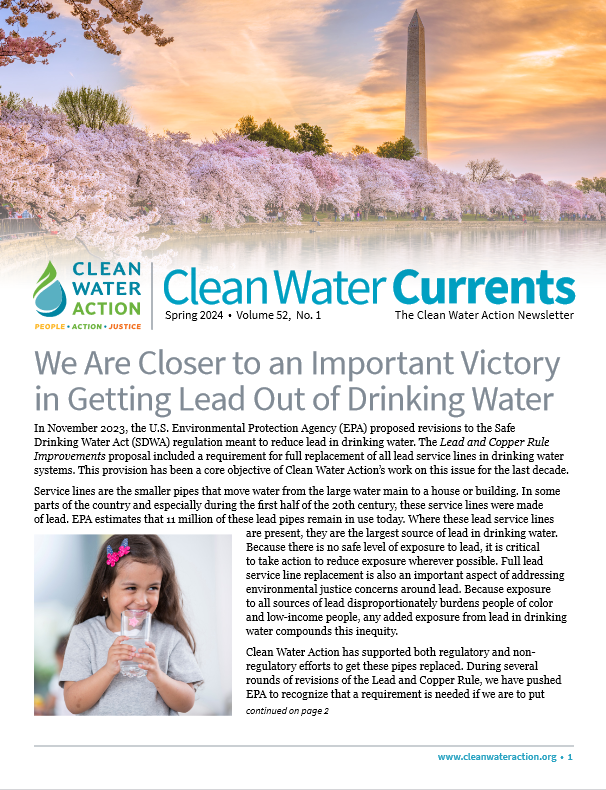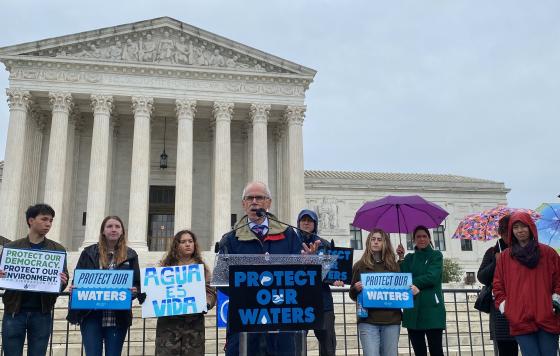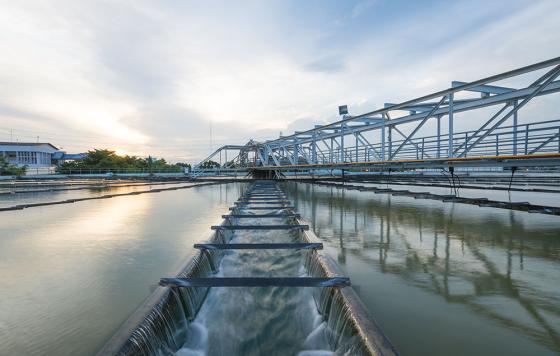In This Issue:
National News
- Congress Should Protect People, Not Polluters
- Devastating Sackett v. EPA Supreme Court Decision Puts All Water At Risk
- Lead In Drinking Water - Putting Lead Service Lines Behind Us
- PFAS Chemicals - Taking the Burden Off Communities and Our Health
- EPA Proposes to Expand Regulation of Toxic Coal Ash
State and Regional News
- California
- Chesapeake Region
- Michigan
- Minnesota
- New England (Connecticut, Massachusetts, Rhode Island)
- New Jersey
- Pennsylvania
- Texas
- Download a PDF of this issue
National News
Congress Should Protect People, Not Polluters!
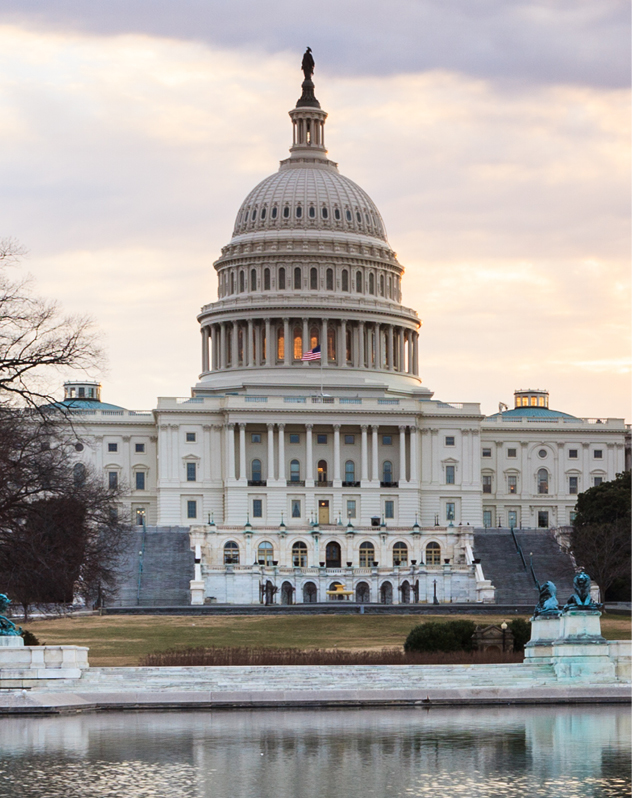
As we go to press, the U.S. Congress is debating the federal government’s Fiscal Year 2024 budget, environmental and health safeguards are at risk, and a government shutdown is possible. In the U.S. House of Representatives, the majority party has proposed budget bills that include severe cuts to programs that reduce water and air pollution and protect communities from toxic exposures. Clean Water Action is mobilizing members and the public to tell their elected officials to support full funding for environmental and health safeguards, to oppose controversial and harmful amendments, and not to cut the historic Inflation Reduction Act investments to address climate change.
Extremists in the U.S. House of Representatives are threatening not to agree to a final budget or a temporary funding bill before the October 1 deadline unless their demands are met. Shutting down federal government activities puts communities at risk from numerous environmental and health threats and grinds policy progress to a halt. In addition, controversial and dangerous provisions in the U.S. House budget bills post their own risks:
Water Infrastructure Investment: Proposed cuts in investment to reduce water pollution and modernize drinking water systems would derail the progress made possible by the Drinking Water and Clean Water State Revolving Funds and the ambitious funding made possible by the 2021 Bipartisan Infrastructure Law (BIL).
Environmental Justice: U.S. House Republicans’ budget bills target President Biden’s Justice40 initiative by proposing to prohibit the Administration’s goal of 40% of the overall benefits of federal investments flowing to disadvantaged communities.
Critical Environmental Protection Agency (EPA) Programs: The U.S. House budget bill proposes to cut EPA funding to the lowest levels in more than 30 years, despite years of underfunding. The House marjority’s bill would slash clean water protections and environmental clean-up programs, doom critical species to extinction, and undo critical investments to tackle the climate crisis.
Click here to tell your elected officials to support bedrock clean water and clean air programs and not extremist proposals and polluters’ agendas.
Devastating Sackett v. EPA Supreme Court Decision Puts All Water At Risk
At the end of May, the U.S. Supreme Court issued its long anticipated decision in Sackett v. EPA, which significantly weakened the reach of the Clean Water Act, our nation’s 50 year old water pollution control law. This decision has restricted the Environmental Protection Agency’s ability to effectively use the Clean Water Act to safeguard wetlands and other critical waters from pollution or destruction. Instead, the Supreme Court has invited fossil fuel and mining companies, real estate developers, and industrial agriculture to pollute, bulldoze, fill in, or drain these invaluable water resources.
While it’s too soon to predict the full impact of this disastrous decision, we do know at least half of our nation’s remaining wetlands are no longer protected by the Clean Water Act. Streams that don’t flow year round — which are the majority of streams in many parts of the arid west — are also at risk of losing protections. Yet the condition of wetlands and non-perennial streams directly impacts the water quality of rivers and other permanently flowing waters. For instance, certain types of wetlands can trap and settle out heavy metals, nutrients, and other toxic pollutants before they enter rivers, lakes, and streams. And many of our drinking water sources are fed by headwater streams that don’t flow year-round, so more pollution and destruction of these streams puts our drinking water sources at risk. In other words, iconic rivers like the Colorado, the Mississippi, and the Delaware are only as healthy as the streams that flow into them and as the wetlands that surround them.
The tough reality we now face is that the Clean Water Act is no longer able to work as Congress originally intended. Congress passed the Act in 1972 with an objective to “restore and maintain the chemical, physical, and biological integrity of the Nation’s waters.” It’s simply not possible to achieve that objective without strong protection for wetlands and streams.

Though the Supreme Court has dismantled decades of clean water protections, we aren’t going to let them have the last word. Congress can — and must — amend the Clean Water Act to restore the protections the Court eliminated. Federal legislation can take years to pass, so in the meantime we also need to ensure that state governments are robustly funded so they have the resources necessary to step up and protect wetlands and streams in their own states.
Lead in Drinking Water - Putting Lead Service Lines Behind Us
Lead service lines are pipes that connect large water main pipes to a house or building. Depending on the age and size of the building, these service lines can contain lead. Where lead service lines are present, they are the largest source of lead in drinking water. Because lead threatens people’s health — especially children — at even low levels, Clean Water Action has been working to get all lead service lines replaced. In Fall 2023, the U.S. Environmental Protection Agency (EPA) is expected to propose new safeguards to get lead out of drinking water.
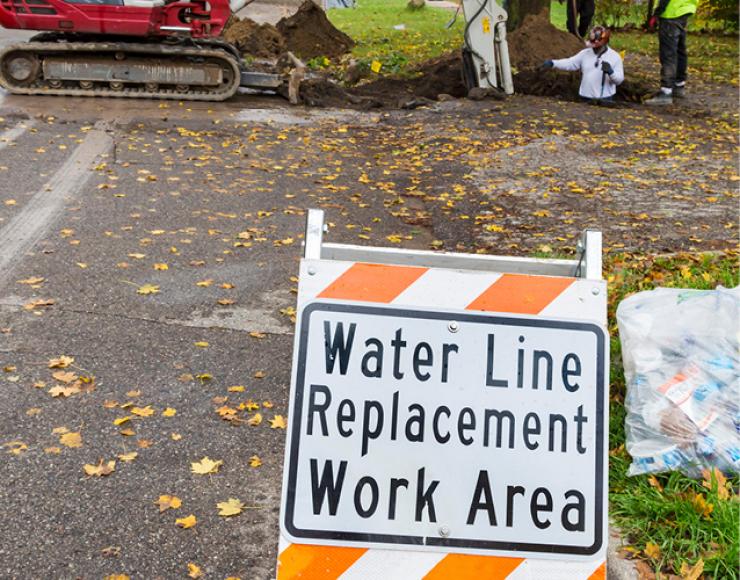
We have pushed the Environmental Protection Agency (EPA) to require water systems to replace all lead service lines. After several rounds of updates to the 1991 Safe Drinking Water Act Lead and Copper Rule over the last 20 years, momentum toward this goal is greater than it has ever been. Water systems across the country have fully replaced lead service lines, are in the process of implementing plans to do so or are considering putting programs in place. The Bipartisan Infrastructure Law (BIL) — the largest investment in water infrastructure in our nation’s history — includes $15 billion to support lead service line replacement.
Clean Water Action will provide input to EPA on the Lead and Copper Rule Improvements proposal, anticipated in early Fall 2023. We will also mobilize our members and the public to comment in support of strong new safeguards to get the lead out of drinking water. Watch for updates on how to weigh in.
PFAS Chemicals - Taking the Burden Off Communities and Our Health
In early 2023, the U.S. Environmental Protection Agency (EPA) proposed long-awaited Safe Drinking Water Act limits for some PFAS chemicals. PFAS is a large group of human-made chemicals widely used in consumer products and industrial processes. People can be exposed in many ways, including through exposure to products like firefighting foam, stain and water-resistant clothing, food packaging, cookware, and cosmetics. Industrial workers and people who live near certain facilities can also have higher levels of exposure. PFAS are found in our drinking water, our air, our soil, and our bodies.
PFAS chemicals can affect people’s nervous systems, their livers, their thyroid functions, and reproduction. They are also linked to increases in some types of cancer, cardiovascular impacts, and impaired immunity, including reduced vaccine efficacy. At certain stages of life, such as infancy, people can be more vulnerable to PFAS. Because of their wide range of health impacts and their presence in drinking water around the country, EPA proposed limits on six PFAS chemicals in drinking water provided by regulated Public Water Systems.
Clean Water Action mobilized members and allies to support EPA’s proposal. We also submitted technical comments to EPA and urged the agency to do everything in its power to ensure that equally aggressive action is taken to keep PFAS chemicals out of the environment in the first place. Not only are drinking water systems and their consumers and communities paying a high cost in health risks and treatment upgrades to reduce PFAS, but drinking water is only one source of exposure. We must keep PFAS chemicals out of our food, our air, and our rivers and other water bodies.
EPA Proposes to Expand Regulation of Toxic Coal Ash

On May 17, 2023, the U.S. Environmental Protection Agency (EPA) announced its proposal to expand regulation of coal ash, which is the toxic byproduct of coal combustion. The Coal Combustion Residuals (CCR) rule finalized by EPA in 2015 exempted coal ash stored in legacy ponds and landfills, even though the toxic waste at these legacy sites has contaminated groundwater across the country with heavy metals and other harmful pollutants. Coal ash ponds and landfills are disproportionately located in low-income communities and communities of color, putting these communities at an increased risk of being exposed to the toxic pollutants found in coal ash.
The new rule proposed by EPA extends federal requirements to monitor, close, and clean up older landfills, legacy ponds, and fill sites that were previously excluded from federal regulations. These proposed revisions are in response to two successful citizen suits that were brought by a coalition of community and environmental organizations in 2015 and in 2022 to force EPA to address legacy ponds — coal ash impoundments at coal plants that stopped generating power before October 17, 2015 — and inactive landfills — landfills that stopped receiving waste after October 17, 2015. Clean Water Action was a plaintiff in the 2015 citizen suit that challenged EPA over its failure to regulate legacy coal ash ponds in the 2015 CCR rule.
Though EPA’s proposal is a significant step toward cleaning up toxic coal ash sites across the country, it fails to address ponds that did not have water in them as of October 2015 or after the 2015 CCR went into effect. Landfills at former coal plants sites that do not also have legacy ponds onsite are exempt from EPA’s proposal. Coal ash that was used as construction fill at schools, playgrounds, and other public spaces is also exempt from this proposed rule.
Clean Water Action testified during an EPA public hearing on the rule and also joined written comments spearheaded by Earthjustice, which urged EPA to strengthen its proposal to ensure that coal ash disposal sites at both current and retired power plants do not contaminate groundwater and the environment. A strong coal ash rule will provide some long overdue relief to the communities that have been most impacted by this toxic pollution and aligns with the Biden administration’s commitment to advance environmental justice.
State and Regional News
California
Sustainable Groundwater
In July, the Journal Nature published a peer-reviewed study co-authored by our own Senior Water Policy Analyst, Ngodoo Atume. Ngodoo and her colleagues analyzed every groundwater plan developed in response to the Sustainable Groundwater Management Act. Not surprisingly, they found that the most at-risk populations — low-income communities and groundwater dependent ecosystems — are most likely to be overlooked when it comes time to analyze problems or look for solutions. You can find the white paper with the policy recommendations here, and an interactive website here.
PFAS
Photo: PFAS Foam on the beach.
PFAS has been front and center in California this summer. A front page article in the LA Times in late July discussed new research identifying the widespread problem of PFAS in drinking water — and includes a quote from Clean Water Action.
In August, our Toxics expert, Andria Ventura, co-wrote an op-ed for the Sacramento Bee with Assemblymember Phil Ting, who has been a leader in legislative efforts to limit the indiscriminate use of PFAS.
ReThink Disposable
Our ReThink Disposable staff celebrated Plastic-Free July with a webinar introducing our growing program. Check out our recommendations to reduce your plastic footprint!
Chesapeake Region
Green Infrastructure in DC
Our DC team is sharing resources on the benefits of green infrastructure and how residents can get involved in the planning process. In partnership with the Anacostia Parks and Community Collaborative, we will be giving presentations on green infrastructure in communities east of the Anacostia River throughout September. Are you a DC resident interested in having more green infrastructure in your neighborhood? Fill out this brief survey and attend our final presentation to learn more and share your thoughts!
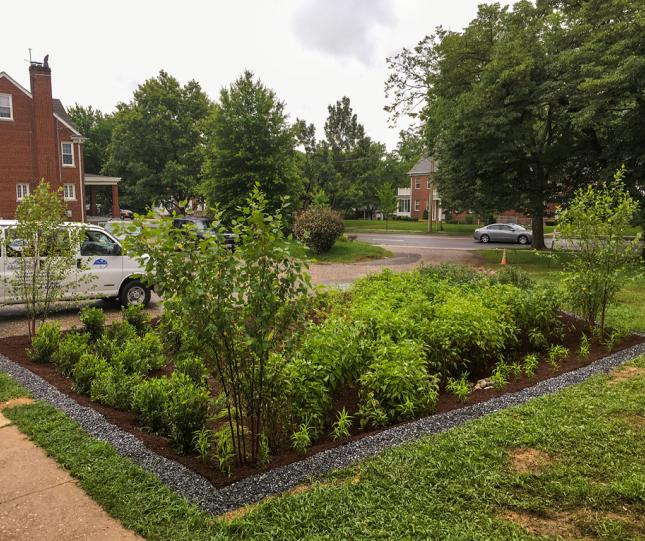
Example of green infrastructure planting
Maryland’s Climate Pathway
The Clean Water Action Maryland office is currently writing comments on Maryland’s Climate Pathway, Maryland’s plan for cutting greenhouse gas emissions. With a team of volunteers, we are spreading the word that the plan does not adequately plan to cut greenhouse gases in the waste sector. The plan misses an opportunity to recommend that Maryland stop burning our trash, does not fully embrace composting and food waste reduction, and does not seek to substitute carbon intensive synthetic fertilizers with carbon sequestering compost on farms. In the midst of this, we are still advocating for an expansion of opportunity for farmers to compost food scraps, and for swift implementation of septic system regulations, and we are in the process of installing native septic-friendly gardens on drainfields.
Michigan
Legislative Opportunities
Legislative Updates
Our Michigan team is gearing up for what ought to be a very busy fall legislative session on many important issues. In August, Governor Whitmer announced her strong support for legislation to hold investor-owned utilities accountable and set a 100% carbon-free energy standard. This is expected to be a top priority for the legislature this fall and we will be working to ensure that what passes is as strong as possible. Moving past fossil fuels and protecting our Great Lakes by shutting down the dangerous Line 5 pipeline and proposed tunnel is an ongoing priority as well.
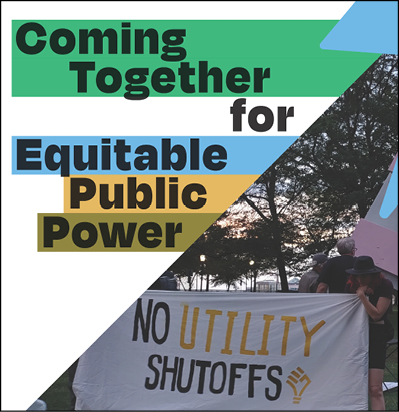
In August, Clean Water Action along with Soulardarity and other partners in the Public Power Project released a new report, Coming Together for Equitable Public Power. This report does an excellent job detailing the opportunities and challenges that come along with municipal ownership of energy utilities. Municipal ownership can be a powerful force for ensuring that the needs of communities and ratepayers are prioritized by energy utilities over shareholder profits. Read the full report at Here!
For the last 8 months, we have also been engaged in Senator Stephanie Chang’s stakeholder workgroup on water affordability. With Senator Chang’s leadership, we are very close to introducing a bill package that will establish a statewide water affordability program. This package will be a big step towards ensuring that all Michigan residents have access to safe, clean, affordable drinking water and we look forward to working with our members and lawmakers to ensure that this is passed into law this year. We have also been working with Senator Jeff Irwin and Rep. Jason Morgan on a polluter accountability bill package that we expect to see introduced this fall. According to recent polling, 95% of Michigan residents support holding polluters accountable and reinstating polluter pay laws, so we are excited to see this work move forward.
On March 22, we partnered with Environmental Justice allies to host a World Water Day event and lobby day at the Capitol. We are also engaging the Governor’s office and legislative leadership to ensure the state budget includes significant funding increases for environmental protection, lead service line replacement, climate resilience, and water shutoff prevention programs.
Minnesota
Legislative Priorities
Minnesota is building on its momentum from passing Amara’s Law, the most comprehensive and aggressive PFAS ban globally, by focusing on a 2024 legislative agenda geared towards addressing PFAS contamination in private wells, creating an avenue to receive medical monitoring if exposed to PFAS, and protecting farmland from PFAS in sludge.
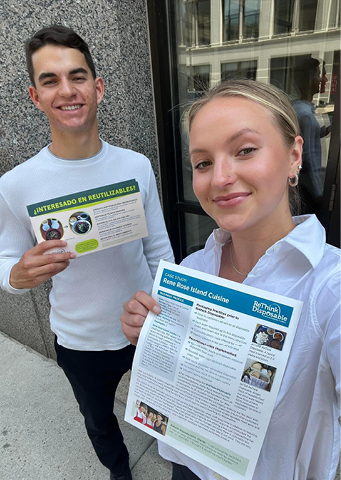
Chloe Kintop and intern Alex Perez
canvassing local businesses to talk to
them about ReThink Disposable.
Our Environmental Justice Organizer, Sasha Lewis-Norelle is working with coalition partners and the MPCA to engage in the rulemaking process related to the recently passed cumulative impacts of pollution legislation to ensure that community voices are represented in the process.
We’re also working with Senator McEwen and Representative Jordan to end the Plastic Bag Preemption, which would give local control back to municipalities. Currently, Minnesota state law prevents municipalities from passing ordinances to ban plastic bags. We’re building a coalition and community support to give that power back to elected city councils and county commissions. Our ReThink Disposable organizer Chloe Kintop (left) is also working with businesses and organizations to transition to sustainable foodware to save money and reduce waste. Click here to learn more and get involved.
Upcoming Event - Brunch for Better
On October 8th from 11am – 2pm we’re holding our first annual Brunch for Better event at the Dakota Jazz Club & Restaurant in Minneapolis. The event will feature a buffet brunch, meet and greet, and award ceremony. Award recipients include lawmakers, grassroots advocates, and volunteers.
NEW ENGLAND
(Connecticut, Massachusetts, Rhode Island)
CONNECTICUT
Waterbury Energy Efficiency
Clean Water Action’s Waterbury Home Energy Action campaign is in full swing and we’re thrilled to have Sharod Blizzard join our team as the new Energy Justice Outreach Organizer. Sharod is a lifelong Waterbury resident and highly skilled in marketing, communications and achieving goals. He’s leading efforts in Waterbury to assist residents in taking advantage of energy efficiency programs that not only save them money and make homes more comfortable but also significantly reduce carbon emissions from heating and cooling systems in old housing stock.
Zero Waste in Schools

Thanks to Amber Schmidt (left), Clean Water Action’s New England Zero Waste Specialist, our ReThink Disposable campaign is already achieving results. Amber is working with municipal leaders in Middletown to convert ten public schools to reusable food serviceware this fall! This will save the school district tens of thousands of dollars and significantly reduce plastic and single-use waste going to landfills. Learn more about ReThink Disposable.
PFAS
We’re gearing up for the 2024 legislative session where we hope to have more gains on reducing PFAS contamination.
MASSACHUSETTS
Mass Save
This fall, Clean Water Action is working for climate justice by helping underserved neighborhoods connect to free or heavily subsidized energy efficiency upgrades through the state’s Mass Save program. Clean Water field organizers have begun door-to-door outreach in targeted communities to help residents sign up for no-cost home energy assessments, and Shalynn Brooks, our Energy Justice Outreach Specialist, will be conducting outreach to businesses and community organizations as well. Energy efficiency upgrades ranging from smart thermostats to new windows and home insulation save families money and lower our state’s climate emissions by reducing the amount of energy needed to heat and cool homes.
Healthy Futures for All
At the State House, Clean Water Action’s staff have been busy collecting testimony in support of our priority legislation. Over 20 letters have been submitted so far from our partners, and 28 groups have also signed on. Senior Policy Advocate Laura Spark was joined by members of our summer intern team for hearings on a comprehensive ban on toxic PFAS, the Toxic Free Kids bill, and a bill to limit state and local funding for artificial turf installations. We have launched a PFAS petition, urging the Public Health Committee to quickly pass the comprehensive PFAS bill, and we are working with other environmental groups and the League of Women Voters to get signatures. Please sign the petition here.
RHODE ISLAND
Zero Waste
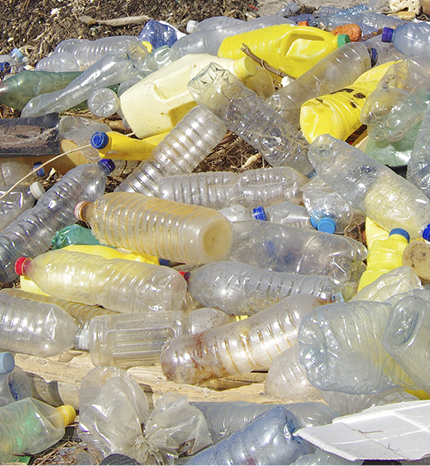
Clean Water Action is continuing to fight plastic pollution and marine litter by working for passage of the Rhode Island bottle bill. State Director Jed Thorp will be serving on a joint House and Senate study commission alongside fellow environmental advocates, state legislators, and representatives from other interested parties like liquor and convenience store owners and the Rhode Island Beverage Association. The study commission will meet periodically over the next few months to discuss policy solutions to beverage bottle litter and plastic pollution including the details of how a bottle bill would work in Rhode Island. You can send a letter to your legislators in support of the bottle bill here!
Additionally, Clean Water Action is connecting with local restaurants, schools, and institutions to help them transition away from single-use disposable foodware as part of the regional expansion of Clean Water Action’s ReThink Disposable program. Stopping waste before it starts is a major piece of getting to a zero waste future. Clean Water Action’s New England Zero Waste Specialist, Amber Schmidt, is supporting small businesses and schools that want to reduce their plastic waste footprint by helping them source affordable reusable foodware and creating a reuse system in their kitchens. Nationally, so far, small businesses participating in ReThink Disposable each saved between $3,000 and $22,000 and reduced their trash by as much as 1,300 pounds’ worth of disposables annually.
PFAS
Clean Water Action is also leading efforts in Rhode Island to reduce PFAS pollution in our waters. Building upon the success of last year’s passage of the ban on PFAS in food packaging and legislation that established PFAS standards for drinking water, we will be advocating for a more comprehensive ban on PFAS in a wide range of consumer products, including apparel, carpet, juvenile products, cleaning products and firefighting foam.
New Jersey
Zero Waste
This summer, Clean Water Action’s Zero Emissions & Warehouse Organizer, Tolani Taylor, organized a Warehouse Convening in Princeton. This event brought together people from all experiences and professions to talk about the various strategies used to not only stop warehouse sprawl in New Jersey, but also create a better freight/goods movement system for the entire state. It’s more important now more than ever to build on this momentum to effectively address this growing problem. One of the ways Clean Water Action has been doing that is to encourage community members to run for local and elected office, as well as raise warehouse concerns with this year’s candidates. Tolani was interviewed on this issue and was featured in an article for northjersey.com.
ReThink Disposable
ReThink Disposable celebrated Plastic-Free July with a webinar highlighting some of the amazing work being done coast to coast. Marta Young, Clean Water Action’s NJ Zero Waste Specialist and part of the national ReThink Disposable team, helped organize the event and breakout sessions. More than 200 people registered. Panelists included actor and producer John Charles Meyer, who is passionate about reducing plastic single-use disposable foodware; Erik Allen, Director of Public Relations for California Parks and Recreation, who shared how he is switching the park from single-use disposables to reusables; and Kim O’Rourke, Recycling Coordinator for the City of Middletown, who explained the significance of Middletown (CT) elementary school system’s efforts to switch to reusables. Finishing out the program was Melissa Hillier, Director of Franciscan Charities (Newark, NJ). The Newark-based soup kitchen is in the midst of constructing a new facility anticipated to serve hot noontime meals to up to 400 clients, five days a week using 100% reusable foodware instead of 100% single-use disposables. Thanks to Marta Young and Melissa’s partnership, Franciscan Charities will be serving their clients with more dignity, saving the organization over $47,000 and reducing nearly a million single-use disposables annually.
Pennsylvania
2023 Elections
It’s not every day that both our right to clean water and our right to vote are on the ballot. But these two issues are critical in the November 7, 2023 election for Pennsylvania Supreme Court. Clean Water Action has endorsed Daniel McCaffrey to ensure that we have strong voices at our highest court for both of these rights that are enshrined in the Pennsylvania Constitution. Register to vote or get a mail-in ballot sent to you at vote.pa.gov.
EPA Action to Clean Up Steel
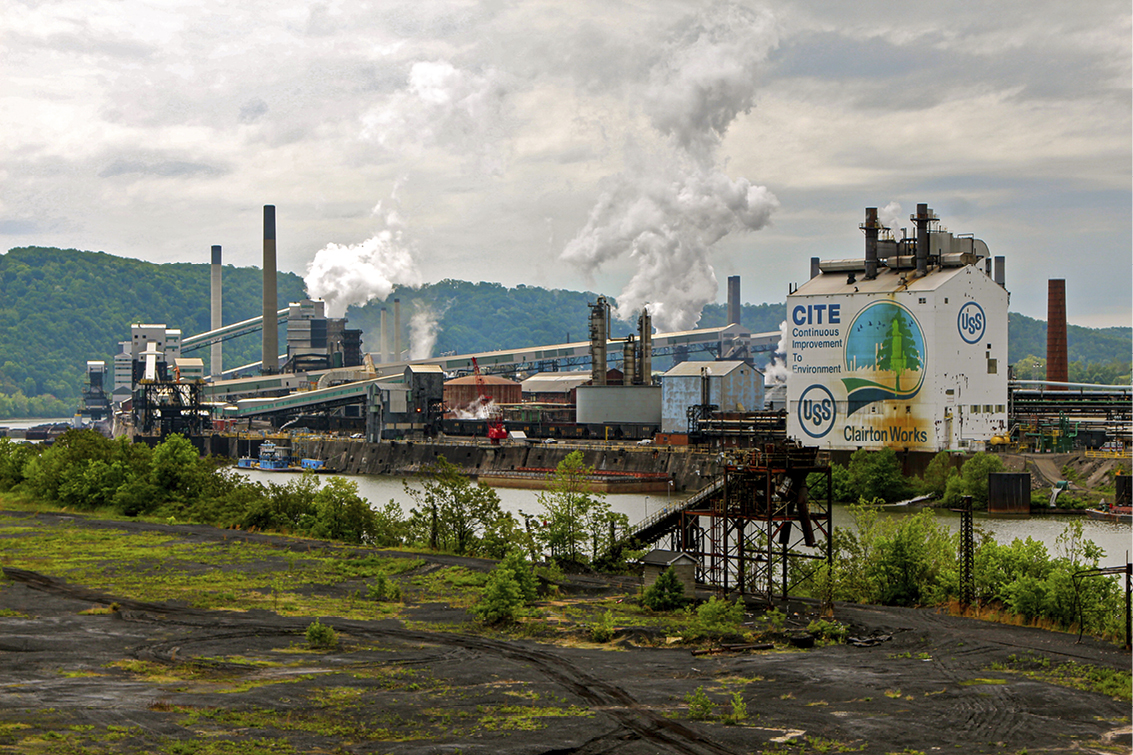
U.S. Steel’s Clairton Coke Works | photo: roy luck (cc by 2.0) via flickr 21550937@N03/890060912
EPA has proposed new rules to cut toxic emissions from the steel and coke industry, including a first time fenceline monitoring requirement for carcinogenic benzene and chromium. These new rules are critical to the safety of frontline communities in the Pittsburgh area, home to the largest coke plant in North America in Clairton along with another half dozen major steel and coke plants in the region. Clean Water Action is working to help steel plant neighbors testify at EPA hearings and submit comments. You can submit your comments to EPA by October 2.
Getting Plastic Bags Off Philly Streets
Clean Water Action is pushing this year to get Philadelphia City Council to implement a fee on any single-use bags to ensure there is an incentive to bring your own reusable bag when shopping. Fees have been proven to reduce single-use bags in many cities in the U.S., and will help get this polluting blight off of Philly’s streets.
Texas
Drought Emergency
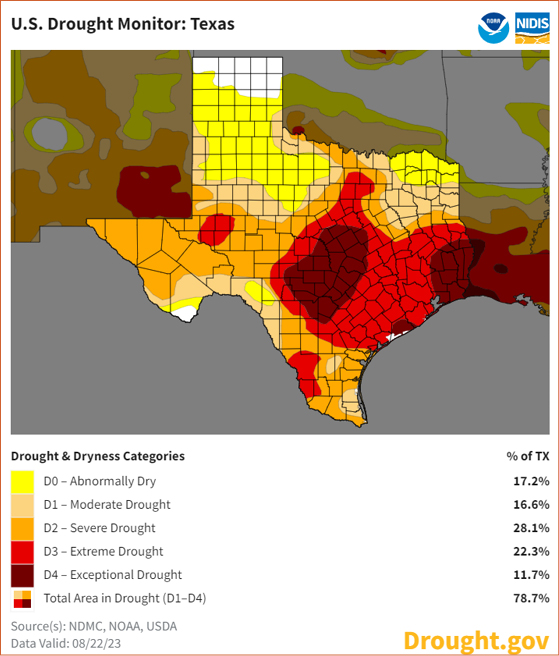
The numbers aren’t looking good, folks. 95.9% of Texas is DRY: The map below depicts current Texas drought conditions, and indicates that during the final week of August, 78.7% of land area in Texas is under drought conditions ranging from “Moderate” to “Exceptional Drought.” An additional 17.2 % of Texas is experiencing “Abnormally Dry” conditions on this same scale.
In addition to our “heat dome” status, we’ve had little to no relief from rain. Among the numerous negative effects of heat and drought, our power grid operating system, the Electric Reliability Council of Texas (ERCOT) that manages ~90% of the state’s electric power flow has repeatedly called on consumers large and small to conserve energy, turn up thermostats, wait to run appliances, etc. because the power grid has neared its maximum non-emergency capacity.
Discussions have taken place between Doug Lewin of the Texas Energy and Power Newsletter and board members at ERCOT about making a decision on continuing to allow the recently-added practice of having battery-stored power make up the margins in these near-emergency situations. Clean Water Action advocates for continuing to have battery-stored power “firming” up our grid in lieu of bringing additional fossil fuel power online to do so. The cost effectiveness and emissions savings demand this common-sense course, and so do our members.
